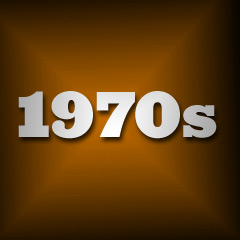
|
![]()
Greatest Films of the 1970s
1970 | 1971 | 1972 | 1973 | 1974 | 1975 | 1976 | 1977 | 1978 | 1979
Title Screen Film Genre(s), Title, Year, (Country), Length, Director, Description 


Alien (1979, UK), 116 minutes, D: Ridley Scott
A grisly, futuristic, suspenseful, atmospheric, memorable and popular science fiction/horror film about the intergalactic journey of a claustrophobic, commercial space cargo freighter, the Nostromo. With terrific sets designed by surreal artist H. R. Giger. The crew includes warrant officer heroine Ripley (Sigourney Weaver in her starring debut role), Kane (John Hurt), Dallas (Tom Skerritt), Ash (Ian Holm), and others, who are awakened from hyper-sleep to investigate a distress signal on a mysteriously bleak, dead planet with a crashed alien spacecraft. In its interior, a lifeform with tentacles clings to Kane's helmet/face, incubates inside his host body, and ultimately bursts from his gut. The hideous, indestructible, carnivorous creature grows in size and hides within the hyper-tech spacecraft, menacing and picking off one crew member after another until self-reliant, resourceful Ripley outsmarts the primal, lethal monster in the explosive conclusion. Followed by three sequels, including James Cameron's Aliens (1986), Alien3 (1992), and Alien Resurrection (1997).

All That Jazz (1979), 123 minutes, D: Bob Fosse




...And Justice For All (1979), 119 minutes, D: Norman Jewison
This blockbuster hit was a satirical, outrageous, lampooning take on the criminal justice system. Idealistic, hot-headed criminal defense attorney Arthur Kirkland (Al Pacino) in Baltimore, MD was called upon to defend by-the-book Judge Henry T. Fleming (John Forsythe), his arch nemesis. Earlier, the Judge had wrongly sentenced and imprisoned Kirkland's criminally-convicted client Jeff McCullaugh (Thomas G. Waites) because of a technicality (Kirkland had filed a motion to reopen the case three days late). Kirkland was also jailed on contempt charges. At the same time, Kirkland was facing the bar's disciplinary committee on ethics charges, while sleeping with Gale Packer (Christine Lahti), a member of the committee. And other problems were occurring: Kirkland's law partner Jay Porter (Jeffrey Tambor) was experiencing a nervous breakdown over some bad judicial decisions, while another of Kirkland's clients - transgendered Ralph Agee (Robert Christian) - committed suicide by hanging after the mishandling of his case. Kirkland was shocked to be forced to represent the Judge when the venerable man was charged with brutal assault and rape charges. (The Judge used blackmail to coerce Kirkland to defend him, by threatening to disclose a serious ethics violation years earlier - a violation of lawyer-client confidentiality. The Judge also promised to reopen the McCullaugh case if Kirkland accepted the case.) During the lengthy proceedings before trial, McCullaugh was repeatedly raped in prison, and eventually retaliated by grabbing a gun and taking two hostages - before he was killed by snipers. The Judge's case was presided over by Judge Francis Rayford (Jack Warden), while the prosecuting attorney was Frank Bowers (Craig T. Nelson). In private, the Judge (after being presented with photographs showing him engaged in S&M with a prostitute), admitted to Kirkland that he was guilty. However, he was able to pass a polygraph test. Incensed by his client's callous attitude (the Judge had casually said he would like to see the "attractive" rape victim again, and he had paid a witness to testify in his favor), it appeared that Kirkland was properly defending his client with his opening statement, but then turned on him with tremendous rage, condemning him for abusing law and order and calling the loathsome judge guilty: "My client, the Honorable Henry T. Fleming, should go right to f--kin' jail! The son of a bitch is guilty! That man is guilty! That man there, that man is a slime! He is a slime! If he's allowed to go free, then something really wrong is goin' on here!..." When Judge Rayford ruled that Kirkland was out of order, he retorted: "You're out of order! You're out of order! The whole trial is out of order! They're out of order! That man, that sick, crazy depraved man raped and beat that woman there, and he'd like to do it again! He told me so!" In the final scene, Kirkland was sitting on the courthouse steps, wondering about his career's future.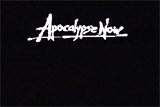



Apocalypse Now (1979), 139 minutes, D: Francis Ford Coppola
A masterful, thought-provoking, pretentious film, with beautifully-chaotic visuals, about the nightmarish, moral madness of the Vietnam War, inspired by the novella Heart of Darkness by Joseph Conrad. Considered by many to be the best war movie of all time, with incredible performances, especially that of hawkish Lt. Colonel Kilgore (Robert Duvall) who "loves the smell of napalm in the morning." Sweeping, surreal, still-controversial Vietnam war epic. An Army captain (Martin Sheen) is sent into the Cambodian jungle aboard a patrol boat carrying a young, spaced-out crew. Their mission: to assassinate ("terminate") a Buddha-like Colonel Kurtz (Marlon Brando) who has become an insane demi-god and now runs his own fiefdom. The grueling production in the Philippines led to vast budget overruns and physical and emotional breakdowns. A revised version, Apocalypse Now Redux (2001) followed.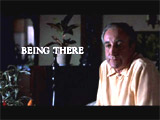

Being There (1979), 130 minutes, D: Hal Ashby
Subtitled "A story of chance," this provocative black comedy is a wonderful tale that satirizes politics, celebrity, media-obsession and television, and extols the wisdom of innocence. The subtle film's slogan proclaimed: "Getting there is half the fun. Being there is all of it." It is a placid fable about Chance (Peter Sellers), a reclusive, illiterate, passive, and simple-minded gardener who is well-groomed, fed on schedule, and dressed in custom-tailored suits. He has lived his whole sheltered life within the walled, Washington, DC estate of an eccentric millionaire named Jennings. His only knowledge of the "real" outside world, an encroaching inner-city ghetto area, is through watching television. When his employer dies, he wanders out into the street with his TV's remote-control to aid him. When his leg is injured, and his name is thought to be "Chauncey Gardiner," he is befriended by Eve Rand (Shirley MacLaine), the wife of dying billionaire industrialist Benjamin Rand (Melvin Douglas). His simple statements about gardening, such as "Spring is a time for planting," are mis-interpreted as profound and wise political-economic advice to none other than President 'Bobby' (Jack Warden). His new-found popularity leads to talk-show appearances, insider parties, book publisher advances, and the potential to become a presidential candidate. The film was directed by director Hal Ashby (already known for Harold and Maude (1971), The Last Detail (1973), Shampoo (1975), Bound for Glory (1976), and the acclaimed Vietnam war film Coming Home (1978)). The politically-satirical, overly-long film about mistaken identity and the television age was adapted from a 1971 novel by Jerzy Kosinski, with Sellers in a chameleon-like role in his second-to-last film.

The Black Stallion (1979), 118 minutes, D: Carol Ballard



Breaking Away (1979), 100 minutes, D: Peter Yates



The China Syndrome (1979), 122 minutes, D: James Bridges
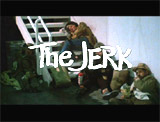
The Jerk (1979), 94 minutes, D: Carl Reiner
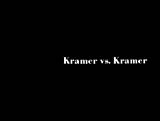


Kramer vs. Kramer (1979), 104 minutes, D: Robert Benton
Robert Benton's sensitive, tear-jerking Best Picture-winning marital drama was about a dysfunctional yuppie family. Ted Kramer (Dustin Hoffman), a workaholic NYC ad executive, suffered an abrupt break-up with unfulfilled, bored and depressed wife Joanna (Meryl Streep). The emotionally-unstable Joanna walked out on him, stating that she was unhappy and needed to find herself. Suddenly, he was propelled into the uncomfortable paternal role of single dad with young 6 year-old son Billy (Justin Henry), needing to take on a nurturing gender role, and balancing demanding career obligations with parenthood (which ultimately meant that Ted was fired from his demanding ad job, but found other less profitable work). However, he was able to establish a very close bond with Billy. But then, about 15 months later, estranged ex-wife Joanna unexpectedly returned to take their son away with her, setting up a nasty child-custody battle in the court. The presiding judge was Judge Atkins (Howland Chamberlain). During her testimony, Joanna argued that she had now regained her self-esteem, was earning a decent salary, and had taken a steady lover. Ted's friend, neighbor and soul-mate Margaret (Jane Alexander) testified that Ted made a great father, although she admitted that she had counseled Joanna to leave if she was unhappy. Ted made an eloquent and heart-felt court plea - defending his right to have custody of his son over Joanna, and his admission that he was not a perfect parent: "My wife, my ex-wife, says that she loves Billy, and I believe she does, but I don't think that's the issue here. If I understand it correctly, what means the most here is what's best for our son. What's best for Billy...Billy has a home with me. I've made it the best I could. It's not perfect. I'm not a perfect parent. Sometimes I don't have enough patience because I forget that he's a little kid. But I'm there. We get up in the morning and then we eat breakfast, and he talks to me and then we go to school. And at night, we have dinner together and we talk then and I read to him. And, and we built a life together and we love each other. If you destroy that, it may be irreparable. Joanna, don't do that, please. Don't do it twice to him." However, the Judge ruled in favor of mother Joanna - Ted lost custody, had to pay child support, and was granted limited visitation rights. In the film's unexpected concluding scene, Joanna met with the persevering Ted after winning custody and was about to take Billy away. But then, she backed down with a sudden change of heart when she realized father-and-son's close bond. She decided that Billy should remain with him in his true home.


Mad Max (1979, Australia), 93 minutes, D: George Miller



Manhattan (1979), 96 minutes, D: Woody Allen
A mature, B/W, tragi-romantic comedy enhanced by a George Gershwin score about infidelity, romances and relationships set in Allen's beloved urban NYC and within a group of intellectual Manhattanites. Neurotic TV comedy writer Isaac "Ike" Davis (Woody Allen) turned from comedy to write his first serious novel, and was dating a sweet, innocent, high-school-aged drama student Tracy (Mariel Hemingway), 25 years younger than he was. His lesbian, divorced ex-wife Jill (Meryl Streep), who was writing an expose about their marriage/divorce (entitled Marriage, Divorce, and Selfhood), lived with Connie (Karen Ludwig) and raising his young son Willie. Davis met Mary Wilke (Diane Keaton), the pseudo-intellectual mistress of his guilt-torn best friend Yale (Michael Murphy) - who was married to Emily (Anne Byrne). Initially, Isaac disapproved of the extra-marital affair and Mary's personality but then became attracted and fascinated by her and began his own affair with her. In a heartbreaking soda fountain scene, he confessed his affair to a tearful Tracy and urged a break-up, but later regretted his foolhardly decision after his dalliance with Mary soon fell apart when she returned to Yale.

The Marriage of Maria Braun (1979, W.Germ.) (aka Die Ehe Der Maria Braun), 120 minutes, D: Rainer Werner Fassbinder
New German cinema's auteur Rainer Werner Fassbinder found further recognition with this influential melodrama - a parable about survival in post-war Germany. Hanna Schygulla starred as the shrewd and ambitious title character, a symbol of the entire nation, who thrived as a career woman at the same time that the country emerged into a period of corruption and decadent prosperity. The resourceful, adaptive and opportunistic Maria used her sexuality and beauty to achieve success with a string of men, resulting in a get-rich-quick rise to capitalistic power - at a terrible personal price. This intelligent and challenging film was the first of a so-called BRD trilogy, followed by Lola (1981) and Veronika Voss (1982).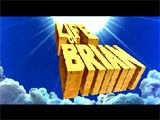

(Monty Python's) Life of Brian (1979, UK), 93 minutes, D: Terry Jones
Monty Python's satirical and insightful version of the New Testament, beginning with the three wise men at the wrong manger with a second "Messiah."

Moscow Does Not Believe in Tears (1979, Soviet Union) (aka Moskva Slezam ne Verit, or Москва слезам не верит), 140 minutes, D: Vladimir Menshov
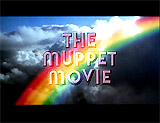


The Muppet Movie (1979), 95 minutes, D: James Frawley
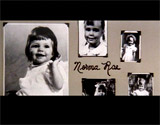

Norma Rae (1979), 110 minutes, D: Martin Ritt
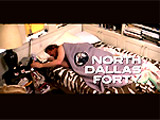

North Dallas Forty (1979), 119 minutes, D: Ted Kotcheff

Nosferatu: The Vampyr (1979, W. Germ./Fr.) (aka Nosferatu: Phantom Der Nacht, or Nosferatu: Phantom of the Night), 107 minutes, D: Werner Herzog
Werner Herzog's expressionistic tribute version of the classic Bram Stoker tale and F.W. Murnau's silent Nosferatu (1922) told about tortured, bald, rat-faced and pointy-eared Count Dracula/Nosferatu (Klaus Kinski). The vampire's first attempt to take pure and virginal Lucy Harker (Isabelle Adjani) failed when she refused his entreaties. Later, however, she sacrificially offered herself up to the vampire - a ploy to vanquish Dracula's evil. With a pale face and wearing a white gown, she was lying perfectly still and awaiting his 'kiss.' As he groped her breast with his long fingered-hand, he slowly descended to bite her neck and feed upon her blood. Her lethal strategy to keep him there paid off - the rising sun's light from her window sealed the Count's fate.


The Onion Field (1979), 126 minutes, D: Harold Becker
This crime drama was about the prolonged miscarriage of justice. It was based on a true series of incidents, recounted in LAPD Sergeant Joseph Wambaugh's 1973 book. It told about the 1963 kidnapping of two plainclothes officers in an unmarked car in Hollywood by two known criminals, ending in the death of Officer Ian James Campbell (in an 'onion field' near Bakersfield, CA). The film followed the events of the true-case and the book fairly faithfully -- two LA detectives (both married): inexperienced Karl Hettinger (John Savage) and veteran cop Ian Campbell (Ted Danson in his debut film) were kidnapped by criminals Greg Powell (James Woods) and Jimmy Smith (aka "Jimmy Youngblood") (Franklyn Seales) in Hollywood. They were driven to an onion field near Bakersfield, where Campbell was shot and killed (after being shot initially, he was also shot 4 times in the chest while on the ground), while Hettinger managed to escape into the darkness. After Powell was apprehended by police and interrogated by Sgt. Pierce Brooks (Ronny Cox), he blamed partner Smith for the murder. Smith was arrested, who then blamed Powell for the crime. Both were charged with first-degree murder. Due to the physical and emotional stress of the case, and the multiple times that he had to defend his actions (and face criticism and tormenting guilt for Campbell's death) and relive the past, Officer Hettinger suffered depression and a nervous breakdown and was forced to resign. His symptoms included suicidal thoughts, impotence, petty shoplifting, weight loss, and nightmares - he eventually recovered. Meanwhile, the two suspects were tried together, convicted by Hettinger's eye-witness testimony, and sentenced to death row. However, the California Supreme Court reversed the conviction, arguing, in part, that the two should have been tried separately. Powell became adept at appeals and exploiting the legal system by delays, constant motions, petitions, and objections, and the two evaded prosecution for years. The two faced a retrial (separately) in 1969. Ultimately, the sentence for both was reduced to life imprisonment when capital punishment was abolished in California.
Real Life (1979), 99 minutes, D: Albert Brooks


Star Trek - The Motion Picture (1979), 132 minutes, D: Robert Wise



10 (1979), 121 minutes, D: Blake Edwards
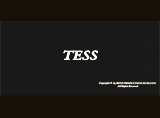

Tess (1979, Fr./UK), 170 minutes, D: Roman Polanski


The Tin Drum (1979, W. Germ/Fr./Pol./Yugo.) (aka Die Blechtrommel), 142 minutes, D: Volker Schlondorff
Director Volker Schlondorff's bizarre, visually-compelling drama was based on one half of Gunter Grass's highly acclaimed 1959 novel, and became a Best Foreign Language Film Academy Award winner. This dark, nightmarish fairy-tale film was about war's madness as the Nazis came to power in the 1920s, told through the eyes of young Oskar Matzerath (David Bennent). He was blessed with auditory clairvoyance and lived in the "free city" of Danzig on the Polish-German border. At the age of 3, he received a tin drum for his birthday - and then after an accident, willed himself to not grow any further. He released his anger by pounding on his drum and letting go a piercing scream (powerful enough to shatter glass) to drown out the horrors, both with greater frequency as Danzig was affected by war and Nazi occupation.

The Warriors (1979), 90 minutes, D: Walter Hill